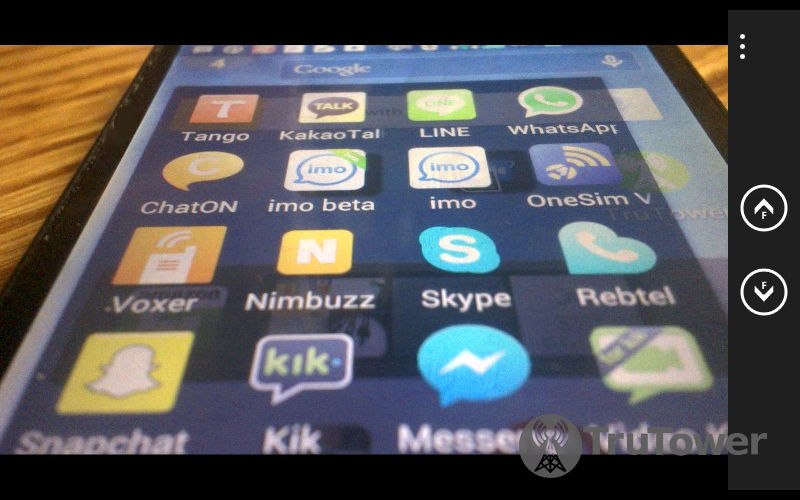We’re all intimately familiar with some message applications boosting their user counts by counting both active and inactive users (often referencing them as “registered users”) rather than simply the active users, or those that are using the application on a regular basis. This is an attempt by these apps to look better against behemoths like WhatsApp, who reported 465 million active users in February, and WeChat, who’s nipping at WhatsApp’s heels with 355 million active users.
Mobile security leader AdaptiveMobile reports that the problem may be worse than simply hiding some numbers in reports. The company reports that mobile apps in North America have sent 8.5 times more invitations per application in the last six months in a race to gain new users.
The company has identified Tango as one of the top applications that use an aggressive form of Growth Hacking, a list that also includes Glide, Meow, Skout, and Pixer.
According to AdaptiveMobile, these apps make it difficult for users to opt-out of sending invitations to their contact lists and the resulting “Growth Hacking” as it’s called occurs when the app requests to promote itself by notifying or inviting the user’s contact list by SMS or other methods.
AdaptiveMobile started tracking the most active, popular social and messaging applications in North America and associated “App-Spam” between February and March 2014. The issue has become a mainstream problem with Google recently updating the Google Play terms and conditions to include a note that apps must not be involved in “Unsolicited promotion via SMS services.” Apps now have 15 days to comply with this update to regulations.
“It’s common to invite friends to new apps, but this shouldn’t turn into spam,” said Cathal Mc Daid, Head of Data Intelligence & Analytics at AdaptiveMobile. “These apps take this principle above and beyond acceptable limits, subverting communications between friends and contacts.”
“the amount of appspam is on an upward trend”
“We took on this research for two reasons,” Cathal said in a statement to TruTower. “One: with the successes that have been achieved in reducing mobile messaging spam in the US, we have seen the relative proportion of spam by these apps increase. Two: [We] have monitored ourselves that the amount of appspam is on an upward trend (as covered in the report, on average apps send significantly more invites then they did 6 months ago). We also believe that we needed to release this research now, as we think that this form of aggressive advertising is coming close to a tipping point, and things may potentially get much worse.
“One analogy for what is think is happening is the ‘Broken Windows’ theory. When several apps (as we have shown in our report) pursue aggressive activity, and there is no consequence, then other apps are naturally inclined to believe that this behaviour is normal and a valid way to increase invites. In the past only one or two apps at a time may have exhibited this behaviour, but as our report has shown, within the past few months there has been a large increase in aggressiveness by multiple apps. This means that the behaviour was been seen as ‘accepted’ and would lead to greater adoption by others.
“In addition recent market forces and the nature of Messaging or social gaming Apps push developers to use every method they can to grow their user base. Not only is this due to their investors putting a dollar value on a per user basis (one oft reported stats is that facebook paid $42 per user) but this is doubly compounded by messaging apps, which rely on others taking them up in order to make the whole experience usable. Aggressive Growth hacking/appspam is one powerful way means of getting a new App noticed in a crowded marketplace, especially one in which there are already key players active.”
AdaptiveMobile found that Tango sent 19.7 percent of the invites, which is relatively small compared to Glide’s whopping 57 percent (10 times more SMS invites than WhatsApp). The company notes that although Tango allows users to easily opt-out of inviting contacts when they install the app, it also includes an ‘Invite on Activity’ feature, so when a photo is taken using the app, this leads to more invites being sent, resulting in a significant number of complaints.
“The key to whether an SMS invite is welcome or viewed as spam lies in the application’s user interface”
“The key to whether an SMS invite is welcome or viewed as spam lies in the application’s user interface,” said Mc Daid. “Making it difficult for users to not send SMS spam invites is one reason behind the high level of App-Spam. This will hurt a company in the long run not only by irritating consumers but, as we’ve seen with last week’s Google announcement, it could also result in having an app being removed from an app store for not complying with terms and conditions.”
AdaptiveMobile has drafted a set of recommendations to ensure that application developers that wish to send invites do it in a manner that won’t lead to messaging abuse and complaints including:
- Make it easy for a user to not invite All Contacts
- Do not ask on start-up or during activity to invite All Contacts
- Do not give an Invite All option
- Do not pre-select All Contacts to be invited in an invite screen
- Allow the user to edit the invite text
- Do not make inviting others via SMS Invites, part of an incentive system (points etc.)
AdaptiveMobile alerted all the applications and shared the research with Google and other industry players in an attempt to solve the problem and “reduce the amount of App-Spam being generated.”

